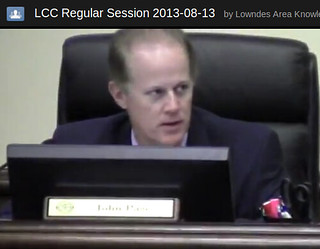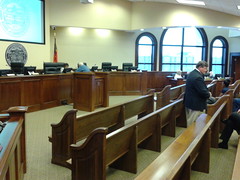 The
KLVB presentation told us up to three states dump in
the Pecan Row Landfill in Lowndes County,
for which the county gets some unspecified amount of tipping fees,
which go to fund KLVB.
An appointment to
KLVB was added to the agenda,
although nobody deigned to reveal who was “that individual that has
requested to serve on that board”.
The
Homeland Security grant application turned out to be for defibrillators.
The
KLVB presentation told us up to three states dump in
the Pecan Row Landfill in Lowndes County,
for which the county gets some unspecified amount of tipping fees,
which go to fund KLVB.
An appointment to
KLVB was added to the agenda,
although nobody deigned to reveal who was “that individual that has
requested to serve on that board”.
The
Homeland Security grant application turned out to be for defibrillators.
Here’s the agenda, with a few annotations and links to the videos.
LOWNDES COUNTY BOARD OF COMMISSIONERSContinue reading
AMENDED AGENDA
WORK SESSION, MONDAY, APRIL 7, 2014, 8:30 a.m.
REGULAR SESSION, TUESDAY, APRIL 8, 2014, 5:30 p.m.
327 N. Ashley Street — 2nd Floor


















